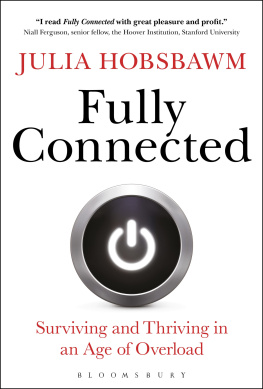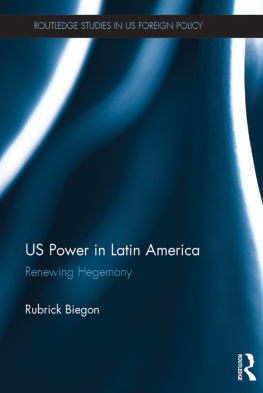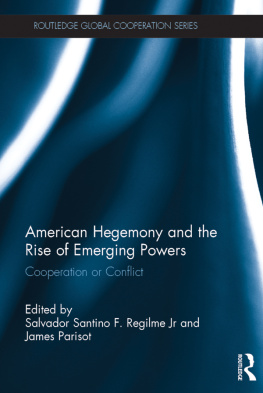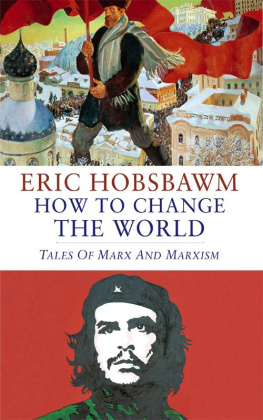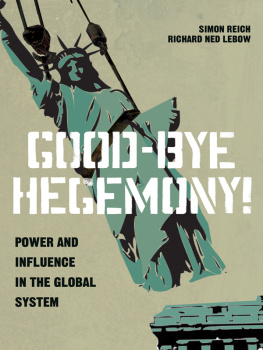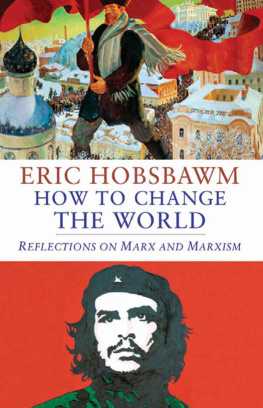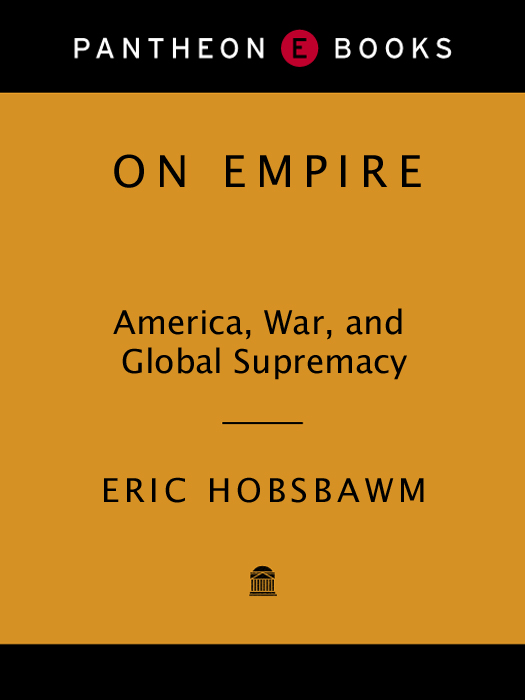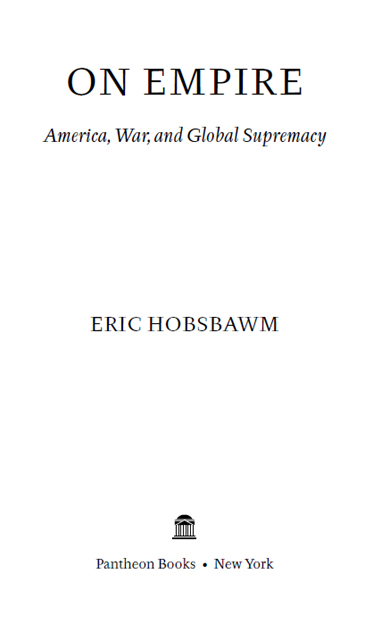Also by Eric Hobsbawm
Labours Turning-Point
Primitive Rebels
The Age of Revolution
Labouring Men
Industry and Empire
Bandits
Captain Swing (with George Rud)
Revolutionaries
The Age of Capital
Workers
The Age of Empire
Nations and Nationalism
The Jazz Scene
The Age of Extremes
Echoes of the Marseillaise
On History
Uncommon People
Behind the Times
On the Edge of the New Century (with Antonio Polito)
Interesting Times
Copyright 2008 by Eric Hobsbawm
All rights reserved. Published in the United States by Pantheon Books, a division of Random House, Inc., New York, and in Canada by Random House of Canada Limited, Toronto.
Pantheon Books and colophon are registered trademarks of Random House, Inc.
Chapter II originally appeared in The London Reviewof Books, February 2, 2002.
Library of Congress Cataloging-in-Publication Data
Hobsbawm, E. J. (Eric J.), [date]
On empire : America, war, and global supremacy / Eric Hobsbawm.
p. cm.
eISBN: 978-0-307-48902-9
1. HegemonyUnited States. 2. World politics21st century.
3. Imperialism. 4. War on Terrorism, 2001 I. Title.
JZ1312.H63 2008
327.73dc22 2007028015
www.pantheonbooks.com
v3.1_r1
CONTENTS
PREFACE
The twentieth century was the most extraordinary era in the history of humanity, combining as it did unparalleled human catastrophes, substantial material improvement, and an unprecedented increase in our capacity to transform, and perhaps to destroy, the face of our planetand even to penetrate outside it. How are we to look back at that age of extremes or forward at the prospects for the new era which has emerged from the old? The present collection of essays is a historians attempt to survey, analyze, and understand the situation of the world at the start of the third millennium and some of the main political problems confronting us today. They supplement and bring up to date what I have written in earlier publications, notably my history of the short twentieth century (The Age of Extremes) and a conversation on On the Edge of the New Century with Antonio Polito. Such attempts are necessary. What can historians contribute to this task? Their main function, apart from remembering what others have forgotten or wish to forget, is to stand back, so far as possible, from the contemporary record and to see it in a broader context and in a longer perspective.
In this collection I have chosen to focus on two sets of questions that require clear and informed thinking today: the general question of war and peace in the twenty-first century, and the past and future of world empires. They take place on a world scene dominated by two linked developments: the enormous and continuing acceleration of the ability of the human species to change the planet by technology and economic activity, and globalization. The first of these, unfortunately, has so far had no significant impact on those who make political decisions. Maximizing economic growth remains the aim of governments, and there is no realistic prospect of any effective steps to meet the crisis of global warming. On the other hand, since the 1960s, the accelerating advance of globalizationthat is to say, turning the world into a single unit of interconnected activities unhampered by local boundarieshas had a profound political and cultural impact, especially in its currently dominant form of an uncontrolled global free market. It is not specifically discussed in these essays, chiefly because politics is the one field of human activity that remains practically unaffected by it. Attempting the dubious task of quantifying it, the Swiss KOF Index of Globalization (2007) has no difficulty in finding indices of economic and information flows, personal contacts, or cultural diffusion (for instance, the number of McDonalds restaurants and IKEAs per capita), but it can think of no better measures for political globalization than the number of embassies in a country, its membership in international organizations, and its participation in U.N. Security Council missions. A general discussion of globalization is outside the range of this book. However, four general observations about it are particularly relevant to the books themes.
First, the currently fashionable free-market globalization has brought about a dramatic growth in economic and social inequalities both within states and internationally. There is no sign that this polarization is not continuing within countries, in spite of a general diminution of extreme poverty. This surge of inequality, especially in the conditions of extreme economic instability such as those created by the global free market in the 1990s, is at the roots of the major social and political tensions of the new century. Insofar as international inequalities may be under pressure from the rise of the new Asian economies, both the threat to the relatively astronomic standards of living of the peoples of the old North, and the practical impossibility of achieving anything like them for the vast populations of such countries as India and China, will produce their own domestic and international tensions.
Second, the impact of this globalization is felt most by those who benefit from it least. Hence the growing polarization of views about it, between those who are potentially sheltered from its negative effectsthe entrepreneurs who can outsource their costs to countries of cheap labor, the high-tech professionals, and graduates of higher education who can get work in any high-income market economyand those who are not. That is why for most of those who live by the wages or salaries of their employment in the old developed countries, the early twenty-first century offers a troubling, not to say sinister, prospect. The global free market has undermined the ability of their states and welfare systems to protect their way of life. In a global economy they compete with men and women abroad, of equal qualifications but paid a fraction of the Western pay packet, and at home living standards are under pressure from the globalization of what Marx called the reserve army of laborimmigrants from the villages of the great global zones of poverty. Situations such as this do not promise an era of political and social stability.
Third, while the actual scale of globalization remains modest, except perhaps in a number of generally smallish states, mainly in Europe, its political and cultural impact is disproportionately large. Thus, immigration is a major political problem in most developed economies of the West, even though the world share of people living in a country other than the one in which they were born is no more than 3 percent. In the KOF Index of Economic Globalization, the United States is in 39th place, Germany in 40th, China in 55th, Brazil in 60th, South Korea in 62nd, Japan in 67th, and India in 105th, though all except Brazil are somewhat higher in the ranking of social globalization. (The United Kingdom is the only major economy in the top ten of both economic and social globalization.)have serious national and international political consequences. I would guess that, in one way or another, political resistance, though unlikely to revive formal protectionist policies, is likely to slow down the progress of free-market globalization in the next decade or two.


